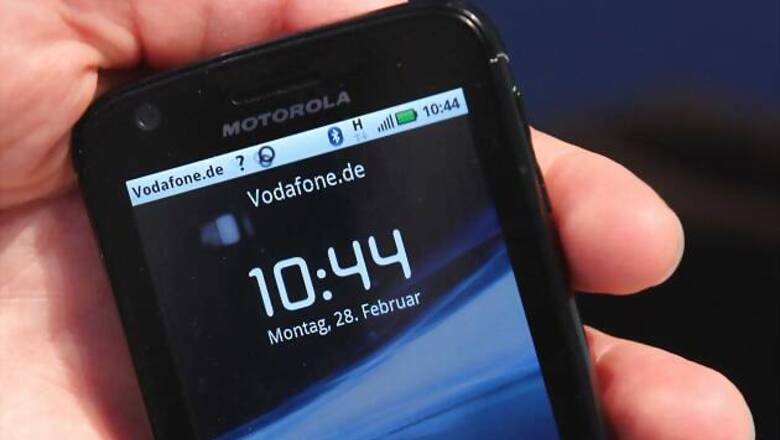
views
Las Vegas: Motorola Mobility and Lenovo on Tuesday said they will use Intel processors in smartphones and other devices, giving the chipmaker its first entry into a market it has long coveted.
Intel Corp. has struggled to bring down the power consumption of its chips so that they can be used in phones without draining the battery in a matter of hours. Meanwhile, phone-style chips from other manufacturers are starting to encroach on Intel's PC chips, by becoming the chips of choice for tablet computers.
Lenovo Group Ltd. will be first out the gate, with a smartphone called K800 for the Chinese carrier Unicom in the second quarter, according to Liu Jun, a senior vice president at the company. The phone will have a 4.5-inch touch screen and will be able to stream video to TV sets equipped with Intel's Wireless Display technology.
Jun spoke as the guest of Intel CEO Paul Otellini, who was making a keynote speech at the International Consumer Electronics Show in Las Vegas. He was joined on stage by Motorola Mobility Holdings Inc. CEO Sanjay Jha, who said he will have Intel-powered phones in testing this summer and ready for consumer hands a few months later.
Jha didn't provide any details about the Intel-powered devices, except to say that they would use Android, Google Inc.'s popular software for smartphones and tablets. Motorola Mobility is set to be acquired by Google. It's unclear if the devices will be able run any Android applications, however. The switch from phone-style chips most likely means applications have to be "recompiled" by their creators into versions compatible with Intel-style chips.
Otellini demonstrated an Intel-made prototype phone, running Android, that he said could get eight hours of talk time and six hours of movie playback from its battery, comparable to smartphones with standard processors. At the same time, Otellini said, the greater processing capability of Intel's Atom chip means the phones can run more programs at the same time.
Microsoft Corp. dealt Intel a blow last year by announcing that it would release its new operating system, Windows 8, in one version for Intel-style chips and other for phone-style chips that are based on designs from Britain's ARM Holdings PLC. Windows has run exclusively on Intel-type chips since the mid-90s. Analysts expect ARM Windows to be used mainly for tablets when Windows 8 goes on sale late this year.
















Comments
0 comment